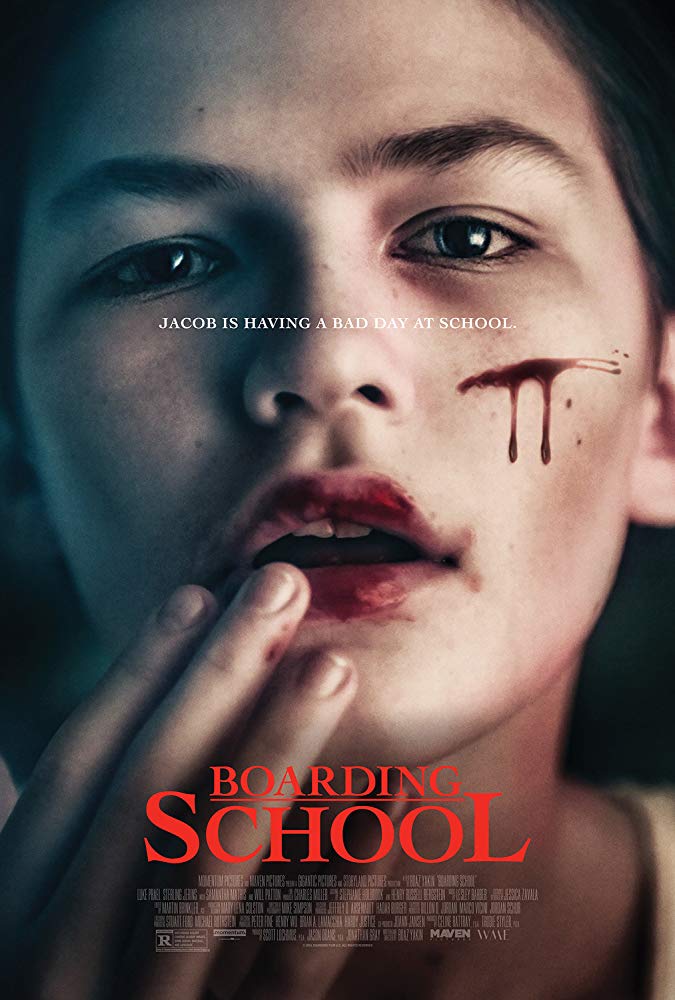
I recently had the opportunity to talk with both writer/director Boaz Yakin and lead actress Samantha Mathis about their latest film BOARDING SCHOOL. The horror/thriller follows a young man as he channels his late grandmother (a survivor of the Holocaust) while dealing with his unfamiliar and creepy surroundings at- you guessed it- his new boarding school. Aside from a decent dose of gore, the witty and entertaining film also explores themes like self-preservation and gender identity through the eyes of adolescents.
Mathis and Yakin took time out of their busy schedules to discuss their personal connections to the story, working with a cast of kids, and some of the challenges unique to the horror/thriller genre. I spoke with Samantha Mathis first- I hope you enjoy our chat!
Mathis and Yakin took time out of their busy schedules to discuss their personal connections to the story, working with a cast of kids, and some of the challenges unique to the horror/thriller genre. I spoke with Samantha Mathis first- I hope you enjoy our chat!
SAMANTHA MATHIS: Hey there.
ANNETTE KELLERMAN: Hi, Samantha. Thank you so much for chatting with me today. I really appreciate it.
MATHIS: Absolutely, my pleasure.
MATHIS: I thought it was a really outrageous and wacky idea. I think after talking to Boaz and getting a little bit deeper sense of some things that informed him in writing it, it really intrigued me. But I also read it and just felt like it was a character I never played before, and I liked the opportunity to explore channeling this crazy mother who is a bit unhinged. That ultimately is what I'm looking for- a character that I haven't played before. There is a need to explore something new.
KELLERMAN: Are you a fan of horror films? Are there any favorites that you drew from?
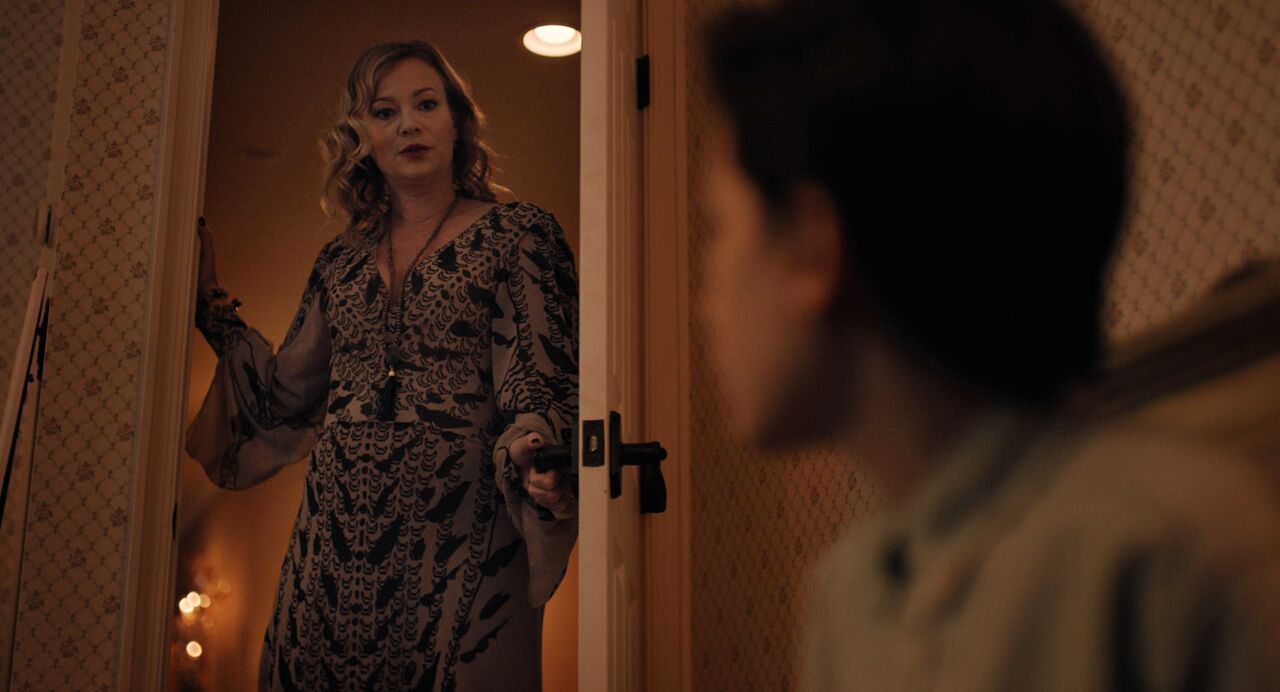
KELLERMAN: There seems to be a theme throughout the film that kind of ties into ... In many kinds of different situations a person will take desperate measures for self preservation. Even, if it's not necessarily something that they would ordinarily do. And that also seems to translate to your character. She's at her wits end with her son and is willing to ship him off to this boarding school.
MATHIS: I mean, I think that what you see is, yes exactly as you said. She is a really fragile woman, and she's at her wits end with her son. She's also just a person who's struggled to maintain peace in her own heart and then her own mind. And she sees a savior in her fiance, and an opportunity to be taken care of. And love is blind. So she chooses not to really see that he may have an ulterior motive.
KELLERMAN: Right, right. Definitely. Without getting too spoilery here... how does performing in a horror film differ from other types of films? Or does it?
KELLERMAN: Right. Like, she's actually the one clueless, innocent character in this whole thing.
MATHIS: Yeah. Yeah, she is. But, I would say that the stakes have to be really high for the thriller/horror genre, you know.
KELLERMAN: Yeah.
MATHIS: And then you can get into really specific kinds of filmmaking with the director and the cinematographer in terms of the lighting and the moodiness and the subtly of ... creating what's the word ... anticipation. You know, being on edge. But, again, you do all sorts of things in all sorts of genres, so I guess those are things that are specific to thriller, horror films. I feel like I'm babbling.
KELLERMAN: No! You're fine. I always have to concentrate on not talking over people during interviews because sometimes I want to interject but I also don’t want to interrupt ...Was there anything that you brought to the character that wasn't on the page?
MATHIS: You'd have to ask the director.
KELLERMAN: I'll ask Boaz when I interview him!
MATHIS: What resonated for me was my own experience of having seen what my grandmother's experience was after War World II, and how that affected her ... her health, her sanity. And how that affected her children. So, I had something specific to draw from.
KELLERMAN: That's such an amazing perspective that I didn’t realize you had. I guess you did have a lot to draw from personally in your family's experience. Speaking of family dynamics, what was it like working with ... Oh shoot, his name just totally escaped me. But the kid who played your son.
MATHIS: Luke.
KELLERMAN: Yes! Luke. Did you have any advice to offer him, or did he have anything to teach you? Sometimes the kiddos teach us.
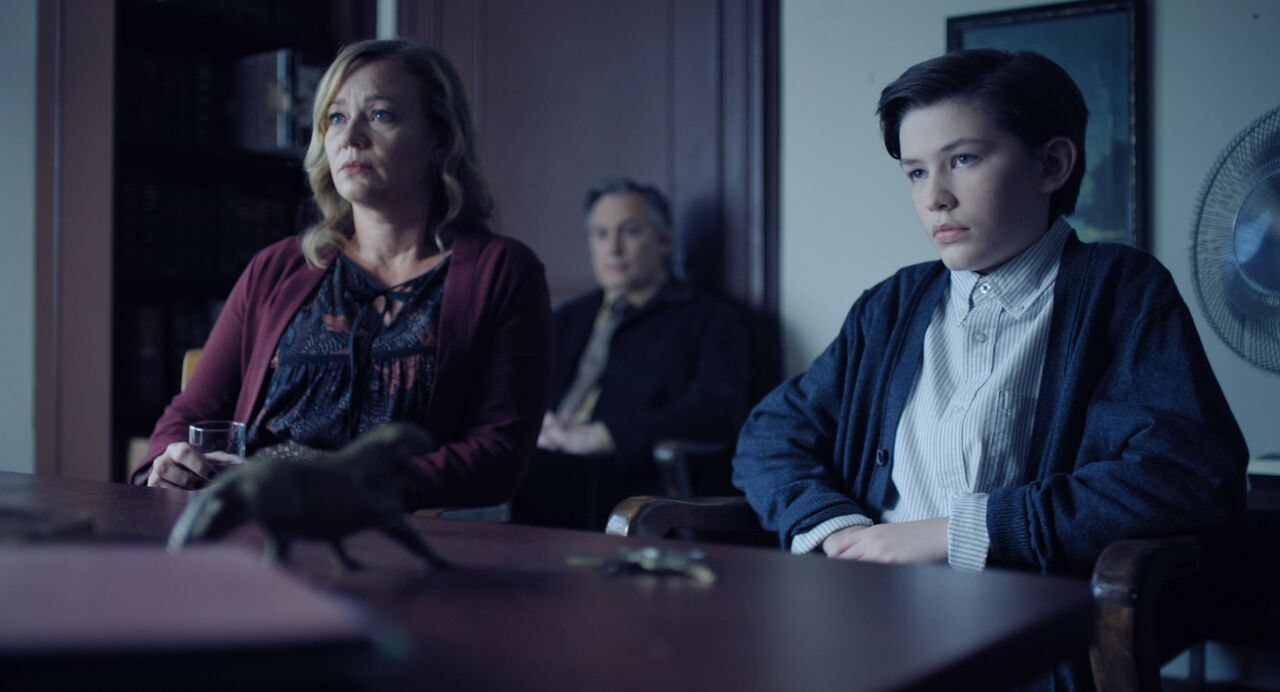
MATHIS: Yeah, that's true. Well I thought he was incredibly brave as a young man to be playing this character without giving too much away. You know, certainly, a bold and brave move for a young man to go into the territory that he does in the film. And I found that really interesting. Particularly since he'd really never acted before. That was a brave thing. And it was ... It's lovely that he had this ... now I'm blanking on her name.
KELLERMAN: Sterling? Who's also incredible.
MATHIS: She's amazing. I think she's just extraordinary. And so, that was wonderful for him that he knew her. They're friends and I think that probably made him feel safe. Children are very present more so than adults I think.
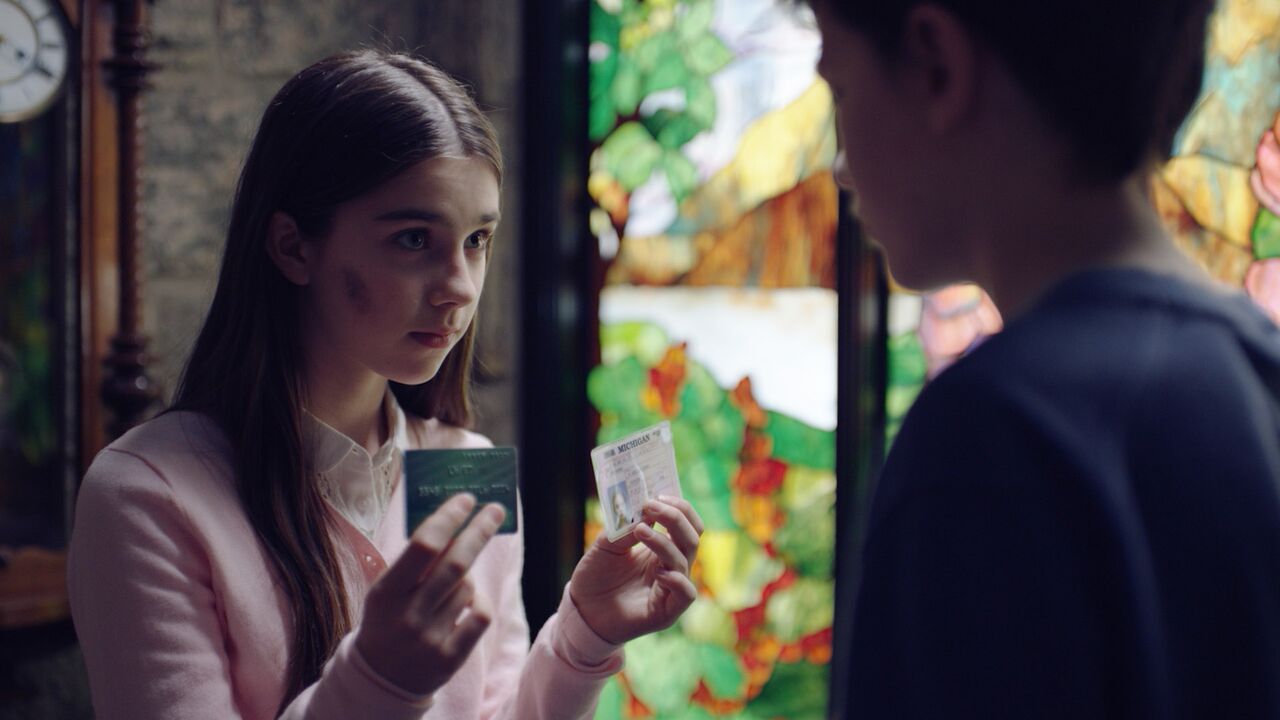
KELLERMAN: Yeah.
MATHIS: So I found him to be very present in his work, and I also just found his face to be incredibly expressive. There is such a great look about him for this movie. I thought he was just quite striking.
KELLERMAN: Definitely. Well, sadly I think we’re out of time, and I probably need to wrap it up, but, is there any big takeaway from the film.
MATHIS: I just hope people are entertained by it. I hope that they're scared and freaked out by it. They are entertained.
KELLERMAN: Yeah, I don't think there's any chance that people won't be freaked out or entertained by it. It's so over the top, I absolutely adored it. Well, I can't thank you enough for chatting with me today. I've been a huge fan of yours for many, many years so this is exciting for me to get to talk to you about one your latest films.
MATHIS: Thank you. Lovely to talk to you.
Next up, I got to speak with Boaz Yakin. Like me, I hope you appreciate the depth in which he discusses the motivation behind the dark story...
BOAZ YAKIN: Hi, there.
ANNETTE KELLERMAN: Hey, Boaz. How are you doing today?
YAKIN: I'm good. Thank you.
KELLERMAN: I really dug BOARDING SCHOOL, and I just have to ask-
YAKIN: Thank you.
ANNETTE KELLERMAN: Hey, Boaz. How are you doing today?
YAKIN: I'm good. Thank you.
KELLERMAN: I really dug BOARDING SCHOOL, and I just have to ask-
YAKIN: Thank you.
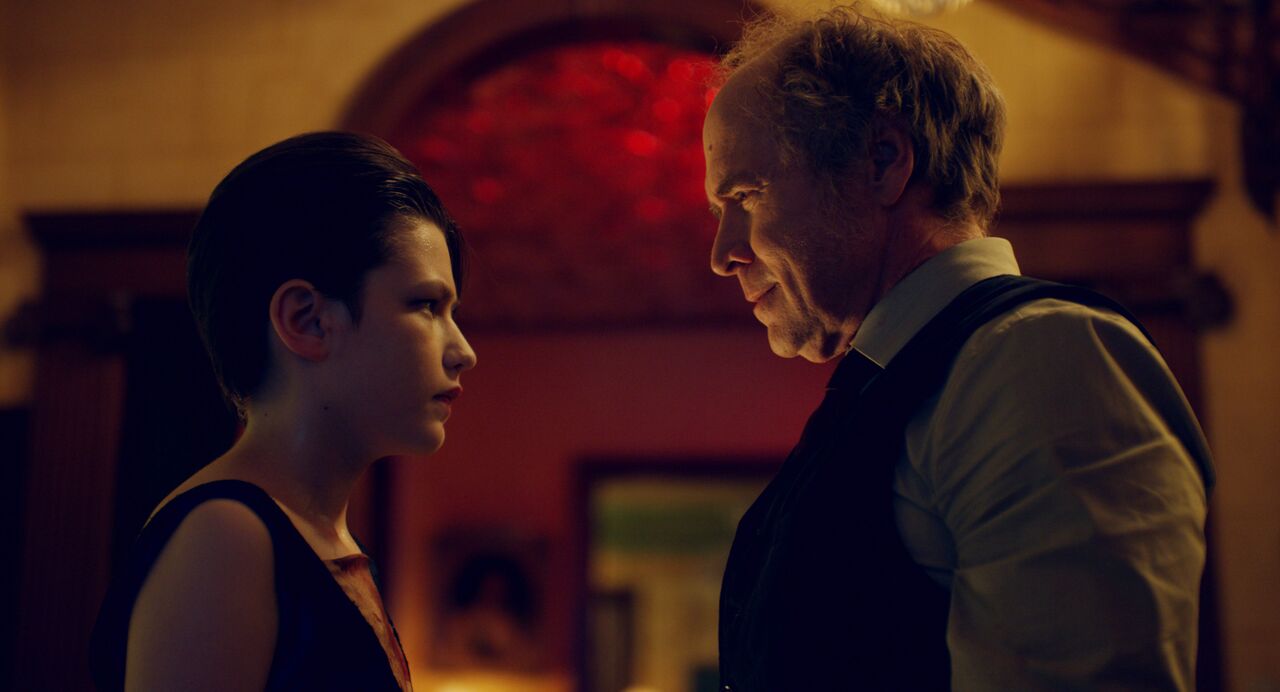
KELLERMAN: What was the inspiration for this kind of crazy, balls-to-the-wall horror/thriller story?
YAKIN: Crazy, huh? I wrote it a while back, so it's kind of hard to remember the inspiration. I do know that I've been kind of dealing with this idea of having to reconcile yourself with your own feminine side, your own sense of shame about your ethnicity, or I should say my own ethnicity. Like, I grew up with a lot of these very ...with internal conflict. Very difficult internal conflicts. I think growing up Jewish and having had my family basically be exterminated in the Holocaust on my mother's side, weirdly, you grow up with a sense of shame about it, of all things. You grow up feeling that Jews were like wimps who let themselves get destroyed. Nothing could be further from the truth of course, but when you're a child, you don't really know better. You just grow up with this gut feeling of being ashamed and a sense of victimization, you know? And then there was also this kind of understanding as I got older that it's really about embracing the things that make you feel ashamed or make you feel weak, that you're able to sort of transcend and become a whole human being, so to speak. Psychologically, emotionally, and so on. This movie for me was about that process. The new movie that I'm doing now couldn't be further away from BOARDING SCHOOL in tone. It's a contemporary ... I don't know what it is. But it also deals with these issues, and I realize that this is something that's really stayed with me for a long time. BOARDING SCHOOL was an attempt to kind of embrace that issue.
KELLERMAN: To incorporate the Holocaust- which of course is a horror in and of itself- into a horror movie. You did such a great job including it without making it exploitative. Can you talk about that? Including that element while treating it with respect and dignity in the context of an actual horror film.
YAKIN: I made this other film, which was in its own way a horror film too, called DEATH IN LOVE It was an independent film that I made before this, and it also dealt with the ramifications of the Holocaust in people living now. The Holocaust has been something that, as I just mentioned to you, really affected me in my life. Yet, there's nothing I want to do less than make a "Holocaust movie", like SCHINDLER'S LIST. I feel like that's been explored. That's clear. We understand what happened and so on. What's interesting about exploring a Holocaust film is what are its effects today? How did the reverberation continue through time and keep affecting people? How does traumatic pain continue through generation to generation? That's interesting to me. So, I've actually made a few Holocaust movies, but they almost hardly touch on the Holocaust. They are more about what it's like to stare into that in the present day. BOARDING SCHOOL, ultimately, is a Holocaust movie in its own way.
KELLERMAN: You're right. There's been a lot of Holocaust films that deal directly with the subject matter, but this really shows how it can affect a family generations down the line. It's really heavy. I was wondering if ... It's set in the 90s. Can you talk about setting it in the 90s, specifically? Was that because of your experience with your family in particular, or were there some other thematic reasons why you wanted to set it in the 90s?
YAKIN: Quite honestly, the 90s was just ... It was the latest you could set it and still have the story make sense. The story deals with this kid's fascination with his grandmother and his grandmother passing away when he's 11, 12 years old. In order for that timeline to work, it had to take place in the 90s. If it was to take place today, the grandmother would be 110 years old. You know what I mean? Honestly, it was just a practical thing about how old would these people be at the time for the story to make sense? And so I set it in the 90s for that reason. There's a title thing [in the beginning] just so that people understand that's when the movie is taking place and put it out of their mind. Why there are no cellphones, etc.
KELLERMAN: As a 90s child myself, it seems slightly ironic- I don't know if ironic is the right word- that Samantha Mathis plays the mom since she was such a 90s “it girl.” I spoke with her yesterday and she told me about her family's experience with World War II and how it impacted them. How did Samantha come on board?
YAKIN: Samantha was just somebody that actually was a friend of one of the producers when we were talking about casting the mom. She came up very quickly and I was like, what a great idea. So immediately, I spoke to her. We Skyped and I just thought she would be great. Truth is, I don't know any of the stories that you might be mentioning. We never talked about that, so that's kind of interesting. So, yeah, Samantha was connected to one of the producers and immediately ... It turned out that she was interested and I jumped on it.
KELLERMAN: Yeah, she said that her grandmother was an Austrian actress who got the heck out of there during the Nazi occupation. Then she went on to play the mother of Anne Frank in THE DIARY OF ANNE FRANK, which is just...
YAKIN: Oh, wow.
KELLERMAN: Which is just kind of strange connection. And then she, of course, had the experience of how that affected her mother. Even though her family was not Jewish, it affected so many people from that era. I thought that was so fascinating. But I also ... There's a theme throughout the film where people go to desperate measures for self-preservation. From the mom, who is at her wit's end and goes to the desperate measure of sending her son to a boarding school, to, of course, all the other happenings in the film that fall under that theme. Can you talk a little bit about that? The underlying theme that people will take desperate measures for self preservation.
YAKIN: That's just part of an extension of ... To me, everything in the movie is basically an extension of Jacob's psychology, so to speak. Like everything you've seen in the movie is sort of dramatizing his internal struggle, and I think that it slides in between genres. You can put it in the horror genre, I guess. To do something that's that dramatic and kind of intense, you have to push these emotions and these feelings as far as they can go. And I think that when you're a kid, all these things are lurking just outside of the range of your understanding. It's kind of a unique experience to be 11, 12, 13 years old-that pocket of time when you're not quite a child anymore and you're not quite an adolescent, and you don't understand... You're in this zone where you kind of understand that you're part of something historical and that there are things that happened before you. You're just not really sure what they are, but everything takes on this kind of huge, dark, epic proportion in your mind. And so, to me, the movie is very much like a childhood fever dream. I was very influenced by movies that explore that type of feeling, where they have a horror element but they're not quite horror films. Charles Laughton's NIGHT OF THE HUNTER was a huge influence. David Lynch's BLUE VELVET, Georges Franju's amazing movie, EYES WITHOUT A FACE. Those movies where they have horror elements, they're very extreme, but they're really more about the psychology and the sort of mood of the story. Those things really influenced me a lot in sort of expressing what we did in the movie.
KELLERMAN: It's kind of a story about misfits, in a way, and of finding your people. Can you talk a little bit about that, but also this incredible young actor Luke Prael and how he took on all of that plus some gender identity themes pretty fearlessly.
YAKIN: Crazy, huh? I wrote it a while back, so it's kind of hard to remember the inspiration. I do know that I've been kind of dealing with this idea of having to reconcile yourself with your own feminine side, your own sense of shame about your ethnicity, or I should say my own ethnicity. Like, I grew up with a lot of these very ...with internal conflict. Very difficult internal conflicts. I think growing up Jewish and having had my family basically be exterminated in the Holocaust on my mother's side, weirdly, you grow up with a sense of shame about it, of all things. You grow up feeling that Jews were like wimps who let themselves get destroyed. Nothing could be further from the truth of course, but when you're a child, you don't really know better. You just grow up with this gut feeling of being ashamed and a sense of victimization, you know? And then there was also this kind of understanding as I got older that it's really about embracing the things that make you feel ashamed or make you feel weak, that you're able to sort of transcend and become a whole human being, so to speak. Psychologically, emotionally, and so on. This movie for me was about that process. The new movie that I'm doing now couldn't be further away from BOARDING SCHOOL in tone. It's a contemporary ... I don't know what it is. But it also deals with these issues, and I realize that this is something that's really stayed with me for a long time. BOARDING SCHOOL was an attempt to kind of embrace that issue.
KELLERMAN: To incorporate the Holocaust- which of course is a horror in and of itself- into a horror movie. You did such a great job including it without making it exploitative. Can you talk about that? Including that element while treating it with respect and dignity in the context of an actual horror film.
YAKIN: I made this other film, which was in its own way a horror film too, called DEATH IN LOVE It was an independent film that I made before this, and it also dealt with the ramifications of the Holocaust in people living now. The Holocaust has been something that, as I just mentioned to you, really affected me in my life. Yet, there's nothing I want to do less than make a "Holocaust movie", like SCHINDLER'S LIST. I feel like that's been explored. That's clear. We understand what happened and so on. What's interesting about exploring a Holocaust film is what are its effects today? How did the reverberation continue through time and keep affecting people? How does traumatic pain continue through generation to generation? That's interesting to me. So, I've actually made a few Holocaust movies, but they almost hardly touch on the Holocaust. They are more about what it's like to stare into that in the present day. BOARDING SCHOOL, ultimately, is a Holocaust movie in its own way.
KELLERMAN: You're right. There's been a lot of Holocaust films that deal directly with the subject matter, but this really shows how it can affect a family generations down the line. It's really heavy. I was wondering if ... It's set in the 90s. Can you talk about setting it in the 90s, specifically? Was that because of your experience with your family in particular, or were there some other thematic reasons why you wanted to set it in the 90s?
YAKIN: Quite honestly, the 90s was just ... It was the latest you could set it and still have the story make sense. The story deals with this kid's fascination with his grandmother and his grandmother passing away when he's 11, 12 years old. In order for that timeline to work, it had to take place in the 90s. If it was to take place today, the grandmother would be 110 years old. You know what I mean? Honestly, it was just a practical thing about how old would these people be at the time for the story to make sense? And so I set it in the 90s for that reason. There's a title thing [in the beginning] just so that people understand that's when the movie is taking place and put it out of their mind. Why there are no cellphones, etc.
KELLERMAN: As a 90s child myself, it seems slightly ironic- I don't know if ironic is the right word- that Samantha Mathis plays the mom since she was such a 90s “it girl.” I spoke with her yesterday and she told me about her family's experience with World War II and how it impacted them. How did Samantha come on board?
YAKIN: Samantha was just somebody that actually was a friend of one of the producers when we were talking about casting the mom. She came up very quickly and I was like, what a great idea. So immediately, I spoke to her. We Skyped and I just thought she would be great. Truth is, I don't know any of the stories that you might be mentioning. We never talked about that, so that's kind of interesting. So, yeah, Samantha was connected to one of the producers and immediately ... It turned out that she was interested and I jumped on it.
KELLERMAN: Yeah, she said that her grandmother was an Austrian actress who got the heck out of there during the Nazi occupation. Then she went on to play the mother of Anne Frank in THE DIARY OF ANNE FRANK, which is just...
YAKIN: Oh, wow.
KELLERMAN: Which is just kind of strange connection. And then she, of course, had the experience of how that affected her mother. Even though her family was not Jewish, it affected so many people from that era. I thought that was so fascinating. But I also ... There's a theme throughout the film where people go to desperate measures for self-preservation. From the mom, who is at her wit's end and goes to the desperate measure of sending her son to a boarding school, to, of course, all the other happenings in the film that fall under that theme. Can you talk a little bit about that? The underlying theme that people will take desperate measures for self preservation.
YAKIN: That's just part of an extension of ... To me, everything in the movie is basically an extension of Jacob's psychology, so to speak. Like everything you've seen in the movie is sort of dramatizing his internal struggle, and I think that it slides in between genres. You can put it in the horror genre, I guess. To do something that's that dramatic and kind of intense, you have to push these emotions and these feelings as far as they can go. And I think that when you're a kid, all these things are lurking just outside of the range of your understanding. It's kind of a unique experience to be 11, 12, 13 years old-that pocket of time when you're not quite a child anymore and you're not quite an adolescent, and you don't understand... You're in this zone where you kind of understand that you're part of something historical and that there are things that happened before you. You're just not really sure what they are, but everything takes on this kind of huge, dark, epic proportion in your mind. And so, to me, the movie is very much like a childhood fever dream. I was very influenced by movies that explore that type of feeling, where they have a horror element but they're not quite horror films. Charles Laughton's NIGHT OF THE HUNTER was a huge influence. David Lynch's BLUE VELVET, Georges Franju's amazing movie, EYES WITHOUT A FACE. Those movies where they have horror elements, they're very extreme, but they're really more about the psychology and the sort of mood of the story. Those things really influenced me a lot in sort of expressing what we did in the movie.
KELLERMAN: It's kind of a story about misfits, in a way, and of finding your people. Can you talk a little bit about that, but also this incredible young actor Luke Prael and how he took on all of that plus some gender identity themes pretty fearlessly.
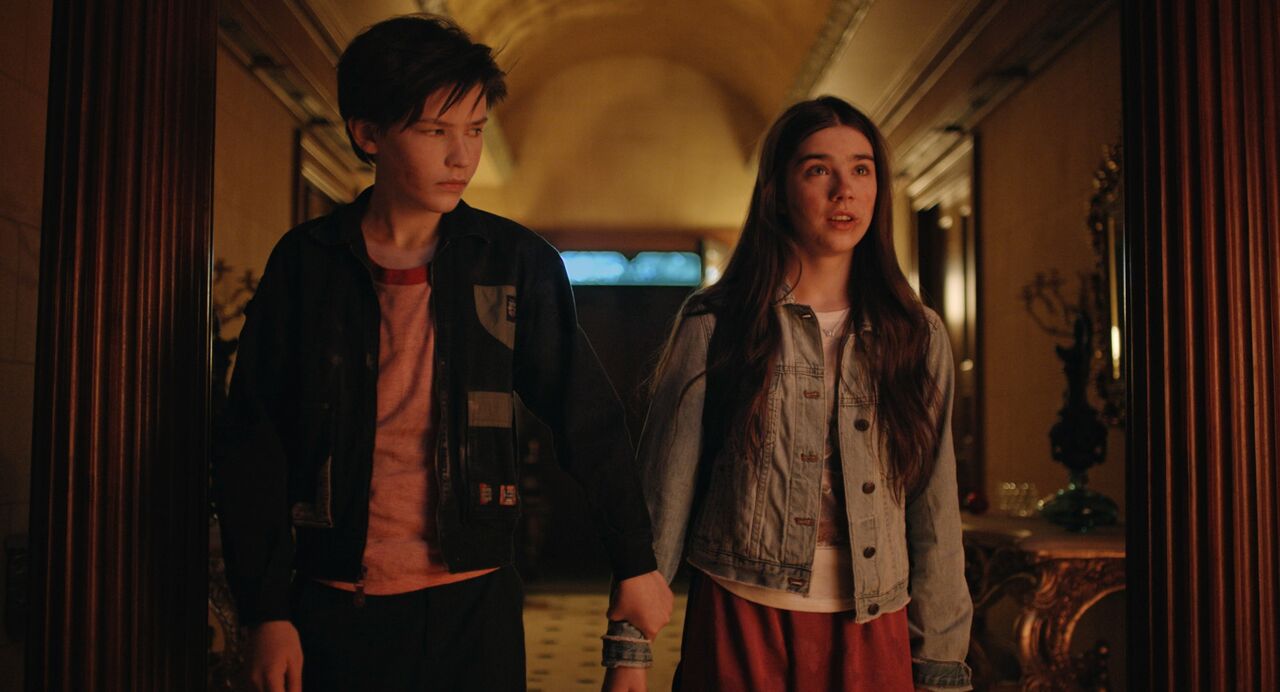
YAKIN: This is his first movie. He just made another one called, EIGHTH GRADE that everyone is really into right now. I haven't seen it, but apparently he's really good in that too. This was his first real movie. When you say fearlessly, what I'm really proud of in terms of his performance is that he was anxious about a lot of it. It's a hard thing to ask a 12 year old to put on a dress and run around in a movie knowing that his schoolmates are going to see it. It was very challenging for him. In some ways, we were very lucky that almost by accident- or totally by accident- the girl who plays Christine, a kind of evil counterpart, happened to be his best friend in real life. Which we didn't know when we cast them.
KELLERMAN: Wow.
YAKIN: I didn't know that. I had no idea. They didn't let on while we were casting. During the casting process, it became clear that they did know each other, and I just thought kind of casually. Once they were cast, it became clear that they had grown up in each other's houses and were best friends. That was actually tremendously helpful in allowing Luke to sort of embrace a lot of the stuff that was challenging and emotionally difficult for him.
KELLERMAN: It's hard to believe that this is his first film because he was pretty amazing! He's very charismatic too. As a director, do you make certain choices, visually or thematically as far as amping up the tension? If so, what are some of the visual and directing choices you made to create that sense throughout the film?
YAKIN: My dream version of making this movie was going to be to start the movie off feeling a little bit naturalistic, a little bit more "realistic." And as the film progressed, and as you get more and more into this boarding school, to start going more and more theatrical. A little bit more kitschy, and end in a more phantasmagorical feeling as epitomized by Mario Bava's movies from the 60s, you know? I thought we were not going to be able to do it, and then we found that incredible mansion up in Riverdale.
KELLERMAN: That was going to be one of my questions. I was wondering if that was a real house. Where did you find that place? It's incredible!
YAKIN: It's this woman's house where she was just living. I walked into this house and I was like, we're going to be able to make the Mario Bava movie. We just had to do little alterations, a little bit of set directing here, and basically it was there. With the help of the DP and so on, the concept was able to be realized... that you start off a little more naturalistic. A little more cool. A little bit more flat. A little more normal, and as the film progresses, it becomes a bit more lurid. A bit more crazy. The colors become more saturated and so on. I was very, very much hoping that we would be able to pay a visual tribute to Mario Bava's movies, you know?
KELLERMAN: Definitely.
YAKIN: I think we succeeded in doing that, so I was super psyched about that.
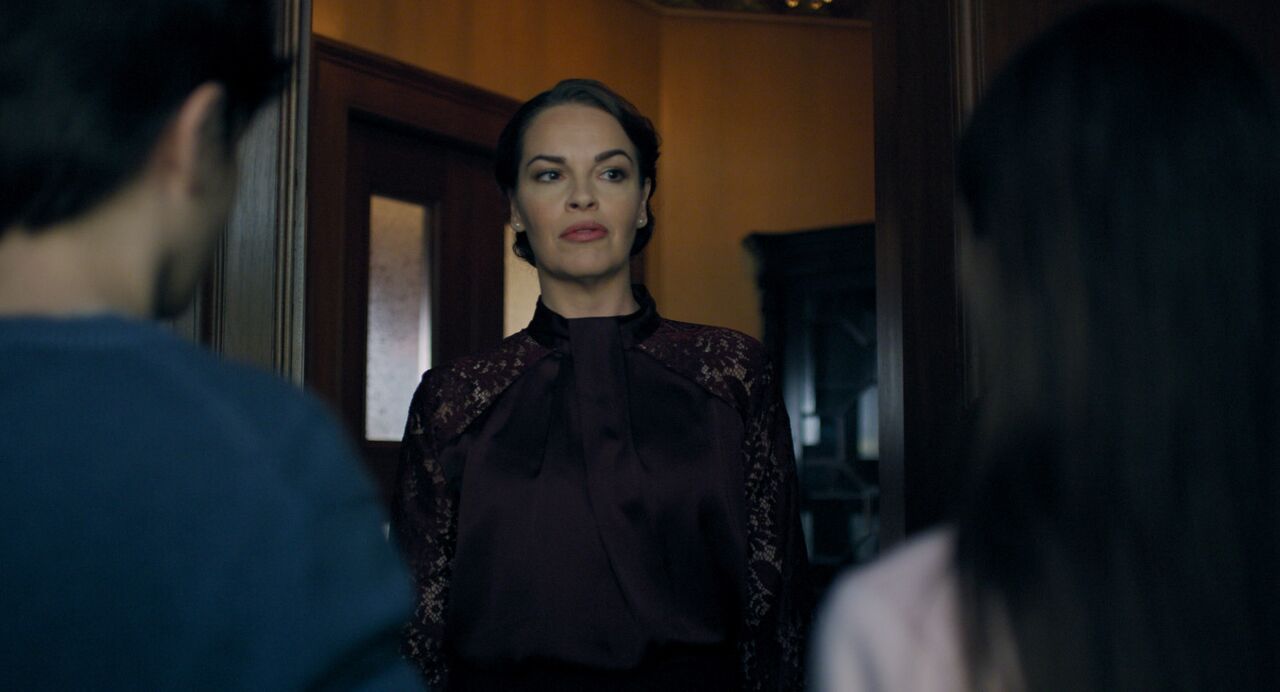
KELLERMAN: I kind of touched on this earlier talking about Luke, but working with kids, effects, and some of the grown up themes... how did you navigate the dark subject matter with a whole cast of kids? Are there any stories you can share relating to that, or were they all just totally cool with it?
YAKIN: Both kids who had to do that stuff in this movie, Sterling and Luke, have great families that are artists who are into theater and movies and so on. So it was a conversation. It's not like there wasn't hesitation or there wasn't the anxiety, but you try to create an environment where they feel safe and that they feel protected. And at the same time, they are exploring and dealing with themes that are unusual for kids that age. This is a pretty damn kinky movie about 12 year olds.
KELLERMAN: Right, right. Was there a lot of hand holding or were they pretty set?
YAKIN: No. They were set, but definitely their parents were there. We went through everything and made sure that they felt supported and taken care of. Frankly, I think sometimes when kids are just throwing themselves into things, they don't really even understand the levels of weirdness that they're expressing.
KELLERMAN: Sure.
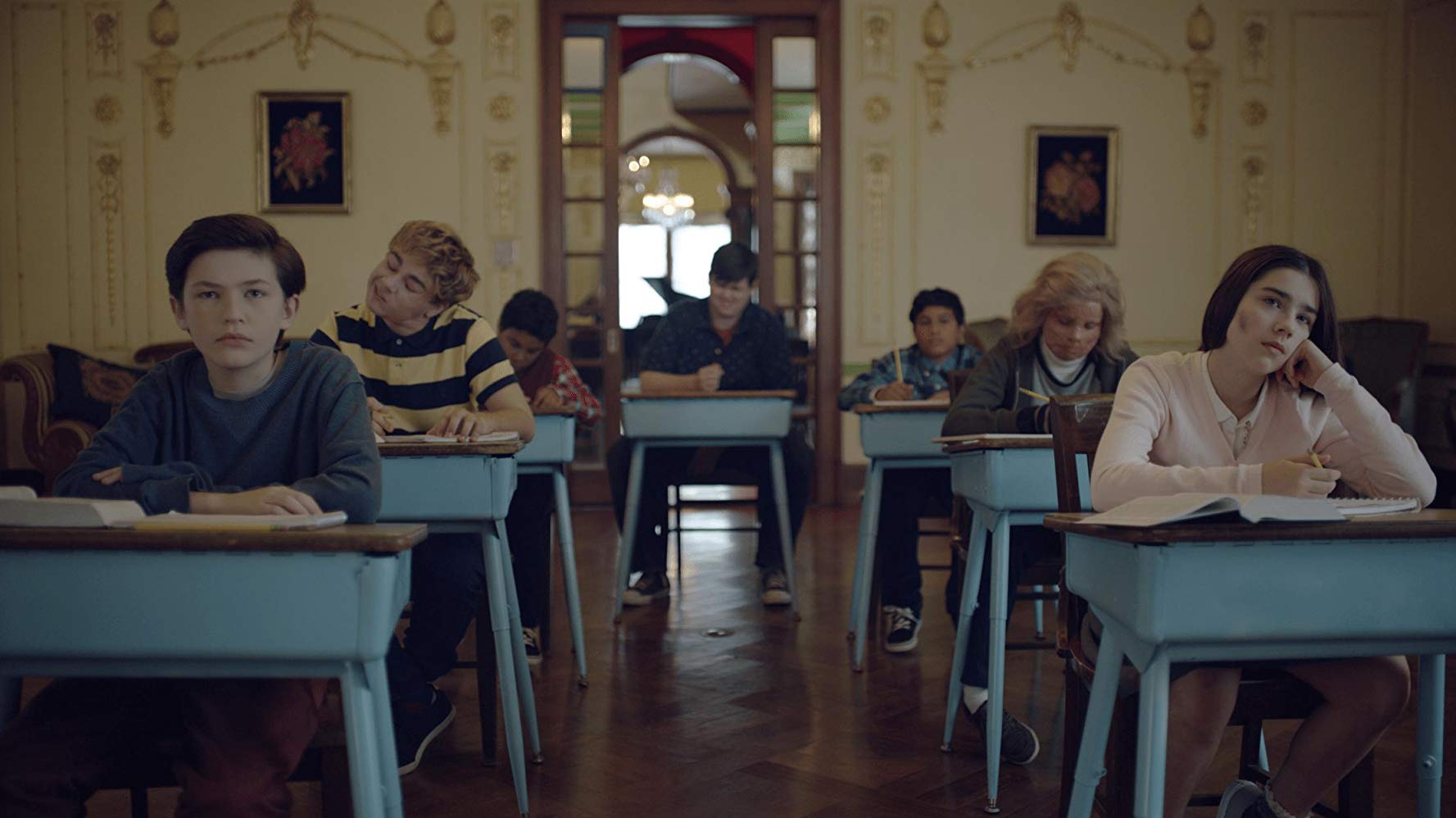
YAKIN: They're just doing the scene. I don't really think they understand the layers under it, necessarily, and I think adults can look at those scenes and go, oh my gosh. What's going on? I don't think a kid would fully understand what the scenes are about on a conceptual level, you know? On that level, I think it's helpful. But yeah, for an American movie, it's pretty unusual for an American movie. Especially the way it deals with sexuality and so on with very young people. I think it makes it challenging to get it out there to an American audience, as well. But I decided to try it.
KELLERMAN: Yeah. I think you're right. Fans of foreign films or Italian horror like you were mentioning...there’s themes that have been covered over there for decades. But for an American audience, it's a little shocking. I like that you went there. Do you have any boarding school experience, or does this all come from your imagination?
YAKIN: It's pretty much my imagination. I've never been to boarding school. I went to an Orthodox Jewish school when I was a kid. A very, very Orthodox school, whereas my home life was completely not religious. I had a bit of a- what you would call, I guess- schizophrenic childhood. I think the sense of being an outsider in that environment was something that worked its way very much into the story. But I was never actually at boarding school.
KELLERMAN: Gotcha. Yeah, I can definitely see how the two could be similar in many ways. Well, that went too fast- I'm afraid we are out of time already! Thank you so much for talking about BOARDING SCHOOL with me today. This was great.
YAKIN: Thank you.
So there ya go! I hope you enjoyed my chat with writer/director Boaz Yakin as well as leading lady Samantha Mathis. Be on the look out for my review of BOARDING SCHOOL ahead of its Friday 8/31 release in theaters and On Demand/Digital HD. Thanks for reading.
Until next time,
Rebecca Elliott
aka Annette Kellerman

